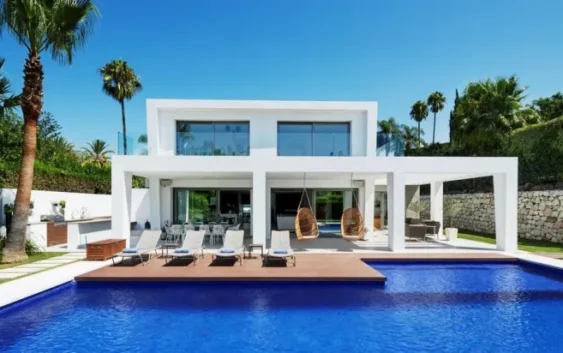The Evolution of Modern Smart Homes: A Glimpse into the Future

In recent years, the concept of a house has undergone a remarkable transformation, thanks to rapid advancements in technology and innovative architectural designs. The traditional notion of a static, brick-and-mortar structure has given way to the emergence of smart House that are not only energy-efficient but also equipped with cutting-edge technologies to enhance the overall living experience. This article explores the evolution of modern houses and provides a glimpse into the future of residential spaces.
Smart Home Integration:
One of the most significant trends in contemporary housing is the integration of smart technologies. Smart homes are equipped with devices and systems that can be controlled remotely, offering homeowners unprecedented convenience and control over various aspects of their living space. From smart thermostats that learn and adapt to your heating and cooling preferences to automated lighting systems that adjust based on natural light levels, these technologies contribute to energy efficiency and personalized comfort.
Security Enhancements:
Security is a top priority for homeowners, and technological advancements have revolutionized home protection. Modern houses are often equipped with sophisticated security systems, including smart cameras, motion sensors, and facial recognition technology. These systems provide real-time monitoring and alerts, offering homeowners peace of mind and an increased sense of security.
Energy Efficiency and Sustainability:
With a growing emphasis on environmental sustainability, modern houses are designed with energy efficiency in mind. Innovative materials, solar panels, and energy-efficient appliances contribute to reduced energy consumption and lower utility bills. Homeowners are increasingly opting for eco-friendly features, such as rainwater harvesting systems and green roofs, to minimize their environmental impact.
Flexible Living Spaces:
The traditional layout of a house with fixed rooms and functions is evolving into more flexible living spaces. Open floor plans, convertible furniture, and multipurpose rooms cater to the dynamic needs of modern families. Homeowners are now seeking versatile designs that can adapt to changing lifestyles, providing spaces that serve as home offices, gyms, and entertainment areas as needed.
Integration of Virtual Reality (VR) and Augmented Reality (AR):
The integration of virtual and augmented reality technologies is poise to revolutionize how homeowners interact with their living spaces. Virtual reality can be use in the design and planning phase, allowing homeowners to visualize and customize their homes before construction begins. Augmented reality, on the other hand, can enhance everyday experiences by overlaying digital information onto the physical environment.
Conclusion:
As technology continues to advance, the concept of a house will undoubtedly evolve further. The integration of smart technologies, emphasis on sustainability, enhanced security features. Flexible living spaces, and the incorporation of virtual. And augmented reality are just a few of the trends shaping the future of residential spaces. The modern house is no longer a static structure but a dynamic. Adaptive environment that caters to the changing needs and preferences of its inhabitants. As we look ahead, the fusion of innovation and architecture promises a future. Where homes are not just shelters but intelligent, responsive companions in the journey of life.
